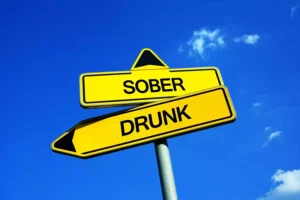This means they’ll experience withdrawal symptoms if they decrease the dose or halt use altogether, or they’re unable to experience the effects of the drug at the dose they’ve become used to, known as tolerance. With that said, it’s important to note that you can be dependent on a drug without being addicted. MAT involves medications to alleviate withdrawal symptoms, reduce drug cravings, and minimize the risk of relapse.
- Physical and mental dependence are interrelated yet distinct concepts that contribute to addiction.
- Regular alcohol consumption can lead to physical and psychological dependence over time, along with potentially deadly withdrawal symptoms.
- When someone uses the term “dependence,” they’re often referring to someone becoming physically dependent on a drug.
- But the biggest source of confusion concerns the word “dependence.” Prior to the DSM-III, the term “dependence” simply meant physiological dependence, as indicated by tolerance and withdrawal symptoms.
Start Your Journey with Us
Like all chronic illness, a family history puts people at higher risk for developing the illness. He sees some people who took just a few weeks to develop an addiction to opioids, while others had a slower journey to their addiction. Dr. Kevin Wandler of Advanced Recovery Systems warns that addictive drugs, such as nicotine, can cause dependence. The leading source to diagnose and understand addiction comes from the Diagnostic and Statistical Manual of Mental Disorders (DSM).

Drug Addiction vs. Drug Dependence
On the other hand, a person could be abusing hallucinogens, like LSD or MDMA, and not become dependent. However, other forms of drug dependence can cause significant withdrawal symptoms. For some substances, such as alcohol, suddenly stopping it can be dangerous. In these cases, treatment involves gradually tapering off the drug over a set period to reduce withdrawal effects. A person can have an addiction without necessarily having a physical dependence.
- The DSM-5 defines substance use disorder as a problematic pattern of use of a substance (such as alcohol, drugs, or medication) leading to clinically significant impairment or distress.
- As the medical and scientific discussion on these terms has progressed in recent years, both are now considered as part of a larger grouping; that of substance use disorder.
- Psychological addiction, on the other hand, focuses on the mental and emotional aspects of reliance on a substance.
- If someone with a drug dependence detoxes, especially by slowly decreasing the amount of the medication they take over a period of time, they may suffer withdrawal symptoms, but can end that physical dependence.
How to Find Treatment

Connect with a rehab program for alcohol and drug addiction to determine which treatments can best meet your unique needs. When substances enter the brain, they trigger the release of certain chemicals. With time, the brain becomes more used to the substances, and it adapts to drugs being in the system.
Physical addiction primarily involves tolerance, or the body’s adaptation to a substance’s presence, often marked by accompanying withdrawal symptoms upon discontinuation of the substance use. People who are physically dependent require increasing amounts of the substance to achieve the same effect and experience discomfort when trying to quit due to withdrawal symptoms. Caffeine is an example of a common substance that causes physical dependence. If you can’t function properly in the morning without your cup of coffee, it could be that you are caffeine-dependent. When you miss your morning cup, you might develop physical withdrawal symptoms, like a headache, fatigue, difficulty concentrating, and more. Physical and mental dependence are interrelated yet distinct concepts that contribute to addiction.
The signs of tolerance are obvious while you are still consuming drugs. But withdrawal may only be clear in the hours or days after last use. Withdrawal usually creates a strong craving for the substance, which tends to restart use and delay withdrawal. Terms often linked to substance use like addiction and dependence may seem the same. But they actually have very different meanings and effects on your life and well-being. Separating the two and learning their characteristics can help you understand and explain your situation more effectively for yourself and others.
Get Professional Help
If you notice some of the signs of social media addiction, work on trying to set some clear limits around how much or how often you log in, and how much time you spend on these platforms. Keep in mind these platforms are designed to get and hold your attention, so work on taking control of your usage instead of letting these sites control you. This way, social media can be something that enhances your quality of life, instead of diminishing it. Talk to your healthcare provider if you’re worried about nicotine withdrawal. They’ll work with you to find a treatment or combination of treatments to help you manage withdrawal.
Dependence and abuse are defined in a way that measures the time and severity of substance use. As it worsens and becomes more frequent, the odds of developing a substance use disorder increase dramatically. Could someone who is dependent on alcohol or drugs be diagnosed as having an addiction? addiction vs dependence The terms “addiction” and “dependence” are often used interchangeably, but there are differences between the two. Online medication-assisted treatment programs are fairly new to the telehealth industry, but existing companies are expanding quickly with new programs emerging every day.
When to see a doctor
Bicycle Health offers therapy, support, and medication for addiction treatment (MAT). MAT offers the lowest relapse rates for opioid use disorder, helping people to stop using opioids with minimal physical discomfort. Like your brain, your body can quickly get used to any drugs8 you take. If you use a drug often, you’ll need higher doses to feel the same effects.


